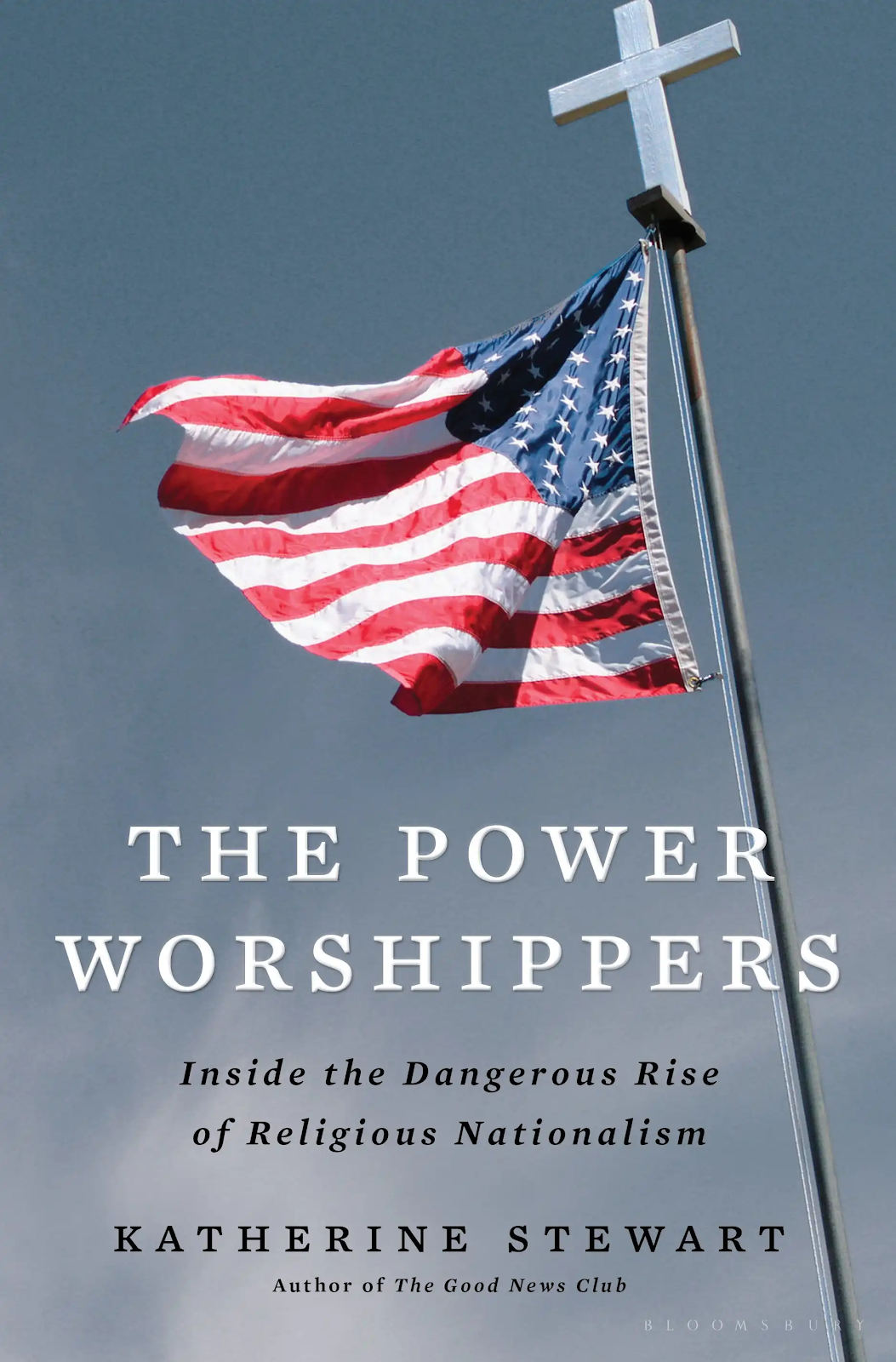Two moments in particular leapt out at me in her introduction:
This is not a "culture war." It is a political war over the future of democracy,
It [Christian nationalism] asserts that legitimate government rests not on the consent of the governed but adherence to the doctrines of a specific religious, ethnic, and cultural heritage.
Stewart researched thoroughly and traveled extensively to places like the gathering in Tulane, where the man who Capitol Hill Bible studies hosts a string of speakers who speak religion, but are mostly about "money and power" and declare "their intention to dominate every aspect of life in America.
She traces the movement back to its earlier and its founding fathers, men like Jery Falwell and Bob Jones, who felt that he had "not just a God-given right not just to separate the races but to receive federal money for the purpose." She looks at the story of how abortion was promoted to a major conservative rallying point by men who, in her telling, wanted to fight back government in general and in particular IRS threats to their tax-free status.
She notes hypermasculinity as a "leitmotif" in conservative Christianity, which really rang a bell for me. I spent much of my younger years around guys I called softball Christians--the guys who would preach the love of Jesus for your fellow man, and then after the picnic, lead their pick-up softball team with take-no-prisoners ruthlessness, like it wasn't just a game between a bunch of our fellow men. Love Jesus, but slide into base hard so you can push the defender off.
Stewart sees a movement built on division and conquest. Notes one interview subject, "For the evangelical church right now, membership is no longer based on color. It is also not really based on religion anymore, either. Your litmus test for religious belonging comes from your political beliefs."
For longtime observers of certain sectors of the school privatization world, there is much to recognize. For one, there is the staunch belief in layers--not everyone is called to be on top, and schools among other institutions should be helping people find comfort in their level, their "right fit," not trying to unnaturally rise above it. Stewart tags Rousas John Rushdoony as one of the intellectual fathers of the movement and quotes him:
"Some people are by nature slaves and will always be so," Rushdoony muses, and the law requires that a slave "recognize his position and accept it with grace."
If it seems Christian nationalism is inherently hostile to democracy, Stewart hammers that home repeatedly. And they are particularly hostile to democratic-organized institutions, like, say, public schools. In 1979, she notes, Jery Falwell said he hoped to see the day when there would not be "any public schools--the churches will have taken over and Christians will be running them." Gary North, who developed for the Ron Paul Curriculum for his buddy Ron, said:
Let us be blunt about it: we must use the doctrine of religious liberty to gain independence for Christian schools until we train up a generation of people who know that there is no religious neutrality, no neutral law, no neutral education, and no neutral civil government. Then we will get busy in constructing a Bible-based social, political, and religious order which finally denies the religious liberty of the enemies of God.
Elsewhere Stewart shows how the movement has "gamed the American judicial system" to support a push for "religious liberty" that "serves to establish a very clear set of privileges for one variety of religion." That included establishing through repeated argument that a religious expression that would otherwise be seen as violating the establishment clause be recast as personal protected speech. In other words, if you tell me I can't preach Christianity in my classroom because I'm a government agent, I will argue that you are infringing on my personal faith-based freedom of speech. She cites Justice Souter as one who saw through to the end of this argument:
If excluding a religious group on account of the fact that it is religious is a violation of its speech rights, then religious groups belong to a super-category of activity that can never be excluded from school (or other government functions).
When you read this book (and you should) you will have to remind yourself that it was published in 2019, because Stewart speaks so clearly to much of what is going on now.
There is much to recognize here. Betsy DeVos. Hillsdale College. The Council for National Policy, the shadowy group with a master plan for education and a truly scary membership list. If you've had the negging sense that the religious right's attack on public education is part of something bigger, that's here. And if you have the nagging feeling that much of it doesn't make sense, Stewart will show you the angle from which it makes perfect sense.
This book is not going to make you feel better about any of it, which is probably the best reason to read it. Highly recommended.


Just picked up a digital copy. Thanks for the recommendation!
ReplyDelete